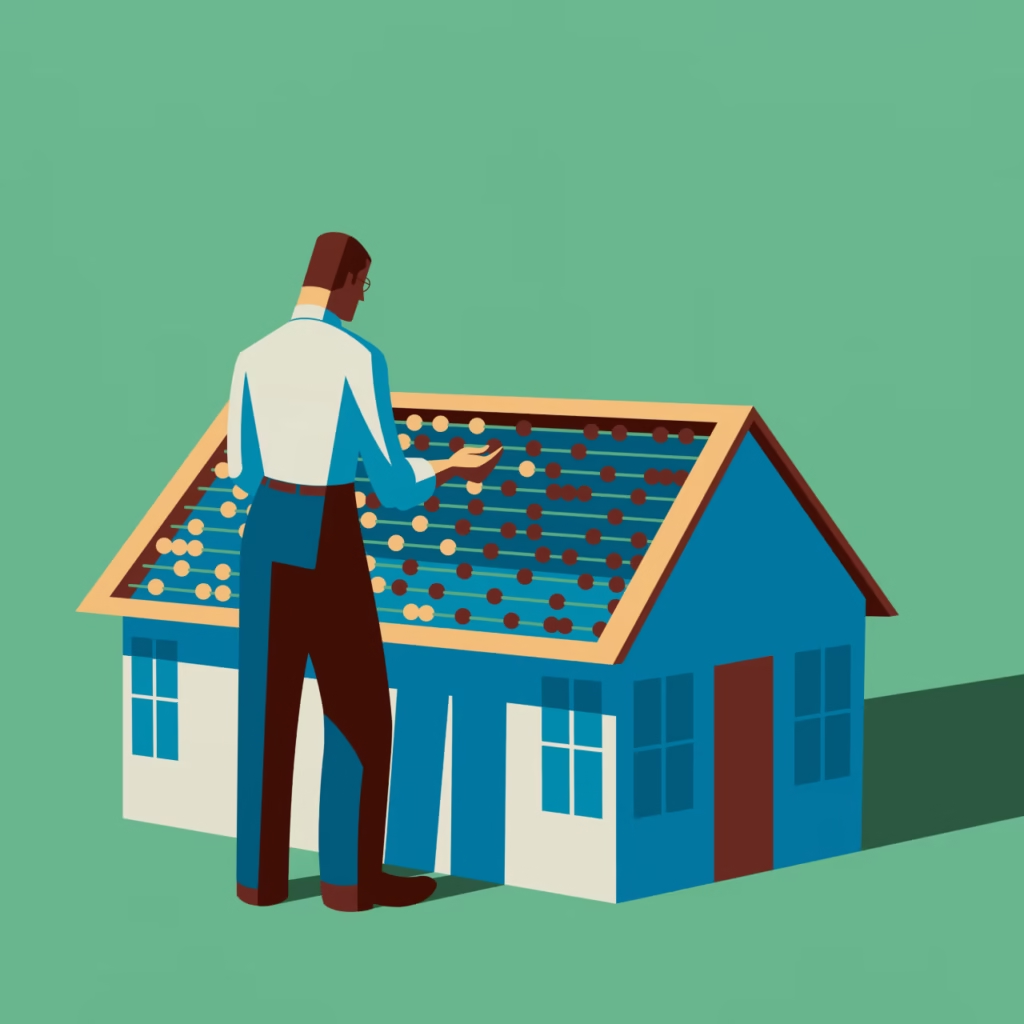
Buying a home is a monumental milestone that represents stability, investment, and personal achievement. However, many buyers—especially first-time homeowners—focus solely on the down payment and monthly mortgage, overlooking the hidden costs that come with purchasing and maintaining a property. These overlooked expenses can add up quickly, turning what seemed like a financially manageable purchase into a strain on your budget. Whether it’s home inspections, property taxes, or unexpected repairs, failing to account for these hidden costs can lead to financial stress and unplanned debt.
Understanding these hidden costs is essential for making an informed home-buying decision. A house may seem affordable based on its listing price, but additional expenses can significantly impact your finances. Home inspections can reveal costly repairs, closing fees can add thousands to your upfront costs, and property taxes may increase over time. Additionally, ongoing maintenance and homeowners association (HOA) fees can accumulate over the years, making the total cost of homeownership much higher than expected.
By preparing for these expenses in advance, you can budget more accurately and avoid unwelcome surprises. This article will guide you through the most common hidden costs of buying a home, helping you navigate the financial landscape of homeownership. From legal fees to insurance and moving costs, we will cover everything you need to know to ensure your dream home remains a blessing rather than a burden.
1. Home Inspection Fees

Why Inspections Are Essential
A home inspection is one of the most crucial steps when buying a home, as it provides insight into the property’s true condition. Many homes have hidden structural, plumbing, or electrical issues that may not be visible during a casual walkthrough. An inspection helps identify these problems before you finalize the purchase, preventing unexpected expenses later.
Typical Costs and What’s Included
A standard home inspection costs between $300 and $500, depending on the location and size of the property. In addition to a general inspection, specialized checks such as pest inspections, mold testing, or radon testing may add extra charges. These assessments ensure that your investment is safe and that there are no hidden dangers lurking within the property.
Unexpected Findings Can Cost More
If an inspector finds major defects—such as a failing foundation or outdated electrical wiring—you may need to pay for further evaluations from specialists. In some cases, these findings can be used as leverage to negotiate a lower purchase price, but they may also force you to reconsider your purchase altogether.
2. Appraisal Fees

What Is a Home Appraisal?
Before a lender approves your mortgage, they require an appraisal to determine the property’s fair market value. This ensures the lender is not financing more than what the home is worth, reducing their financial risk.
Average Appraisal Costs
Appraisal fees typically range from $300 to $600, though unique or luxury homes can cost significantly more to evaluate. The appraisal process considers factors such as the home’s location, condition, and recent sales of similar properties in the area.
Impact on Your Loan Approval
If the appraised value is lower than your offer price, the lender may refuse to finance the full amount. This means you’ll either need to renegotiate the price with the seller or pay the difference out of pocket—an unexpected financial hit that many buyers aren’t prepared for.
3. Closing Costs and Legal Fees
What Are Closing Costs?
Closing costs include a variety of fees, such as loan origination fees, title searches, and document processing costs. These expenses can range from 2% to 5% of the home’s purchase price, which means a $300,000 home could come with closing costs of $6,000 to $15,000.
Legal Fees and Their Importance
In some states, buyers are required to hire a real estate attorney to oversee the transaction. Even if it’s not mandatory, having a lawyer review the contract can help you avoid legal pitfalls. Legal fees typically range from $500 to $2,000, depending on the complexity of the deal.
Unexpected Last-Minute Fees
Buyers often encounter last-minute fees at closing, such as document courier fees, homeowners association transfer fees, or prorated property taxes. These unplanned expenses can add hundreds or even thousands of dollars to your final bill.
4. Property Taxes
How Property Taxes Are Calculated
Property taxes are based on the assessed value of your home and vary by location. Some areas have higher tax rates than others, and understanding these costs beforehand can help you avoid financial strain.
Escrow Accounts and Annual Payments
Many lenders require property taxes to be included in your monthly mortgage payment through an escrow account. If your taxes increase, your monthly payment will also rise, which can impact your long-term budget.
Potential for Tax Increases
Property taxes may rise due to reassessments, local government decisions, or neighborhood improvements. Even if your taxes seem reasonable now, they could become a significant financial burden in the future.
5. Homeowners Insurance
Why Insurance Is Non-Negotiable
Lenders require homeowners insurance to protect the property from risks such as fires, theft, and weather-related damages. Having adequate coverage is crucial for financial security.
Average Costs and Coverage Gaps
Homeowners insurance typically costs between $800 and $1,500 per year, though this can be higher in areas prone to natural disasters. Standard policies may exclude events like floods or earthquakes, requiring additional coverage.
Bundling and Discounts
Many insurers offer discounts for bundling home and auto insurance. However, it’s important to compare policies to ensure you’re getting the best deal without sacrificing coverage.
6. Private Mortgage Insurance (PMI)
When PMI Is Required
If your down payment is less than 20%, most lenders require private mortgage insurance (PMI) to protect them in case you default on the loan.
Monthly PMI Costs
PMI typically costs between 0.5% and 1% of your loan amount per year. On a $250,000 mortgage, this means an additional $1,250 to $2,500 annually in costs.
How to Remove PMI
Once you reach 20% equity in your home, you can request PMI cancellation. However, some lenders require a formal appraisal, which adds another expense to the process.
7. Maintenance and Repairs
Routine Maintenance Adds Up
Owning a home comes with regular maintenance tasks like HVAC servicing, lawn care, and gutter cleaning, all of which cost money.
Unexpected Repairs Are Inevitable
Major repairs, such as replacing a roof or fixing a broken furnace, can cost thousands of dollars. Homeowners should expect occasional large expenses.
Creating an Emergency Fund
Experts recommend saving 1-3% of your home’s value annually to cover maintenance and unexpected repairs.
8. Utilities and HOA Fees
Utility Costs Can Surprise You
Heating, cooling, water, and electricity bills can be significantly higher than renters expect, especially in larger homes.
Homeowners Association (HOA) Fees
If your home is in an HOA community, expect monthly fees ranging from $200 to over $1,000, depending on amenities and services.
Assessments and Special Fees
HOAs may impose special assessments for major repairs or upgrades, which can catch homeowners off guard.
9. Moving Costs
Hiring Movers vs. DIY
Professional movers can cost anywhere from $500 to $5,000, depending on the distance and services needed.
Hidden Costs of Moving Supplies
Packing materials and storage fees can add unexpected expenses to your moving budget.
Travel and Temporary Accommodation
Long-distance moves may require temporary housing and travel expenses, adding further costs.
10. Renovations and Personalization
The Urge to Customize
New homeowners often invest in painting, flooring, or new furniture, quickly adding thousands to their expenses.
Permits and Compliance Fees
Certain home improvements require permits, which come with costs and the risk of fines if not obtained.
Financing Renovations
If you finance renovations, factor in interest rates and long-term debt impact.
Conclusion
Buying a home is a rewarding investment, but hidden costs can catch buyers off guard. By budgeting for inspections, closing costs, insurance, and ongoing expenses, you can avoid financial stress. Being prepared ensures that your home remains a source of stability rather than an unexpected financial burden.






